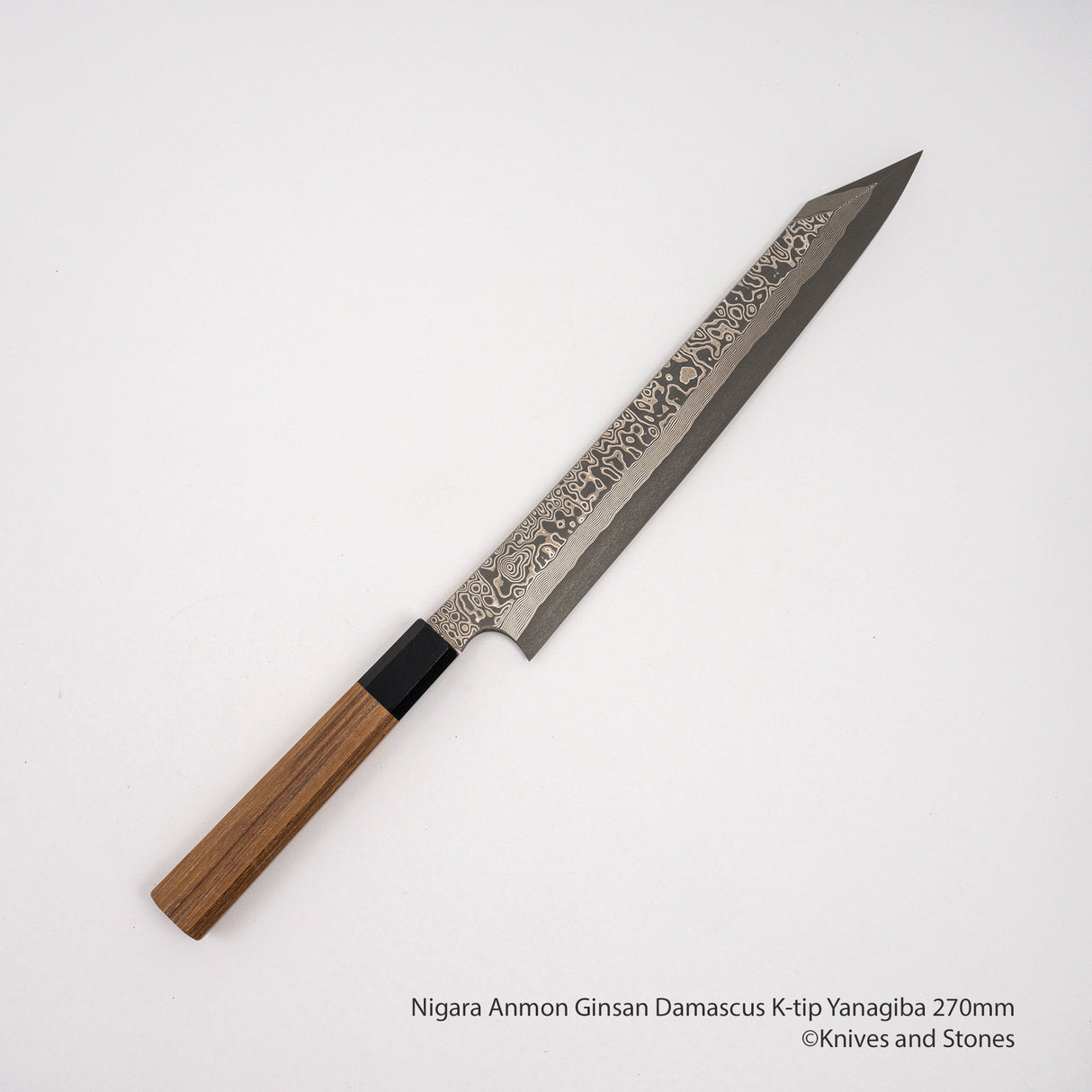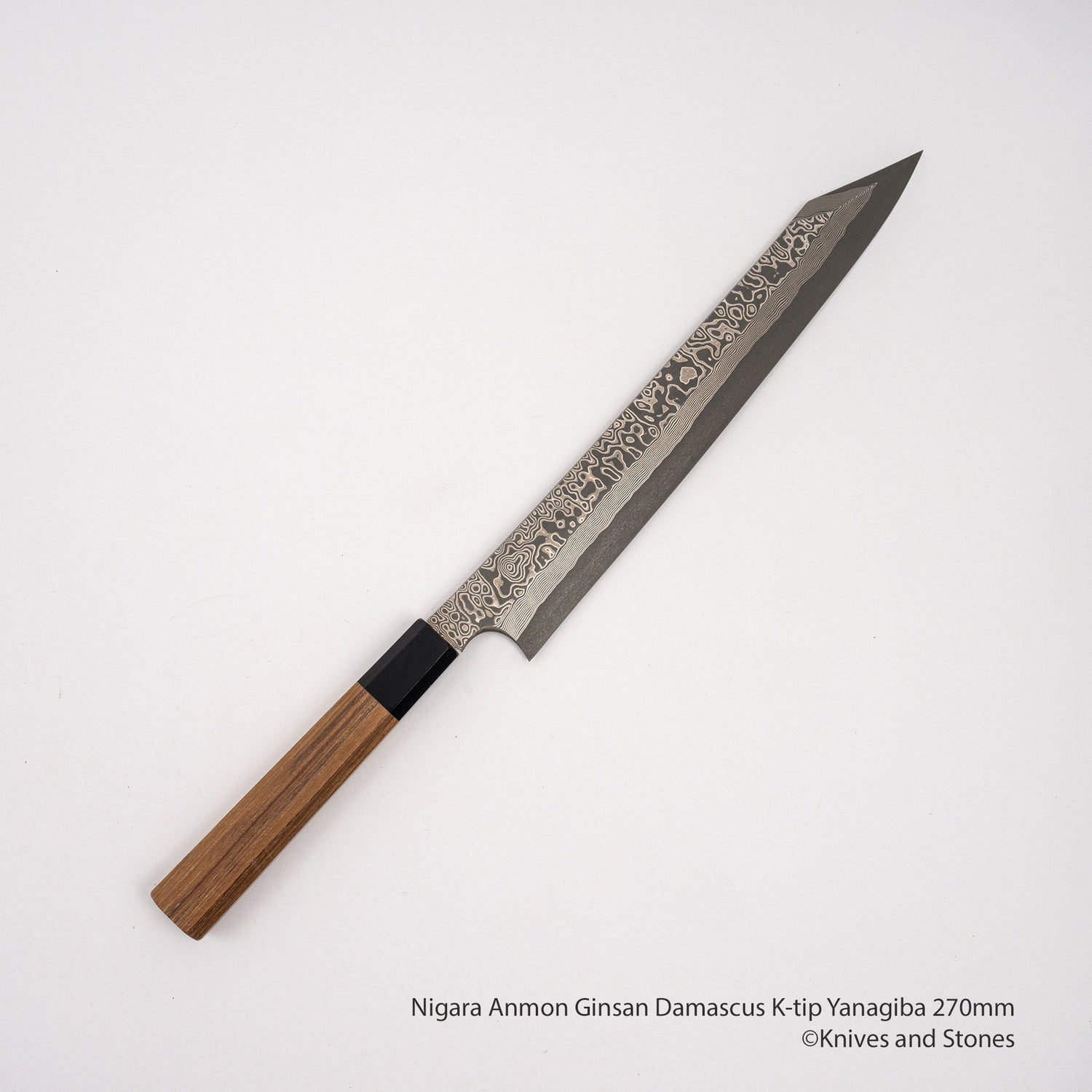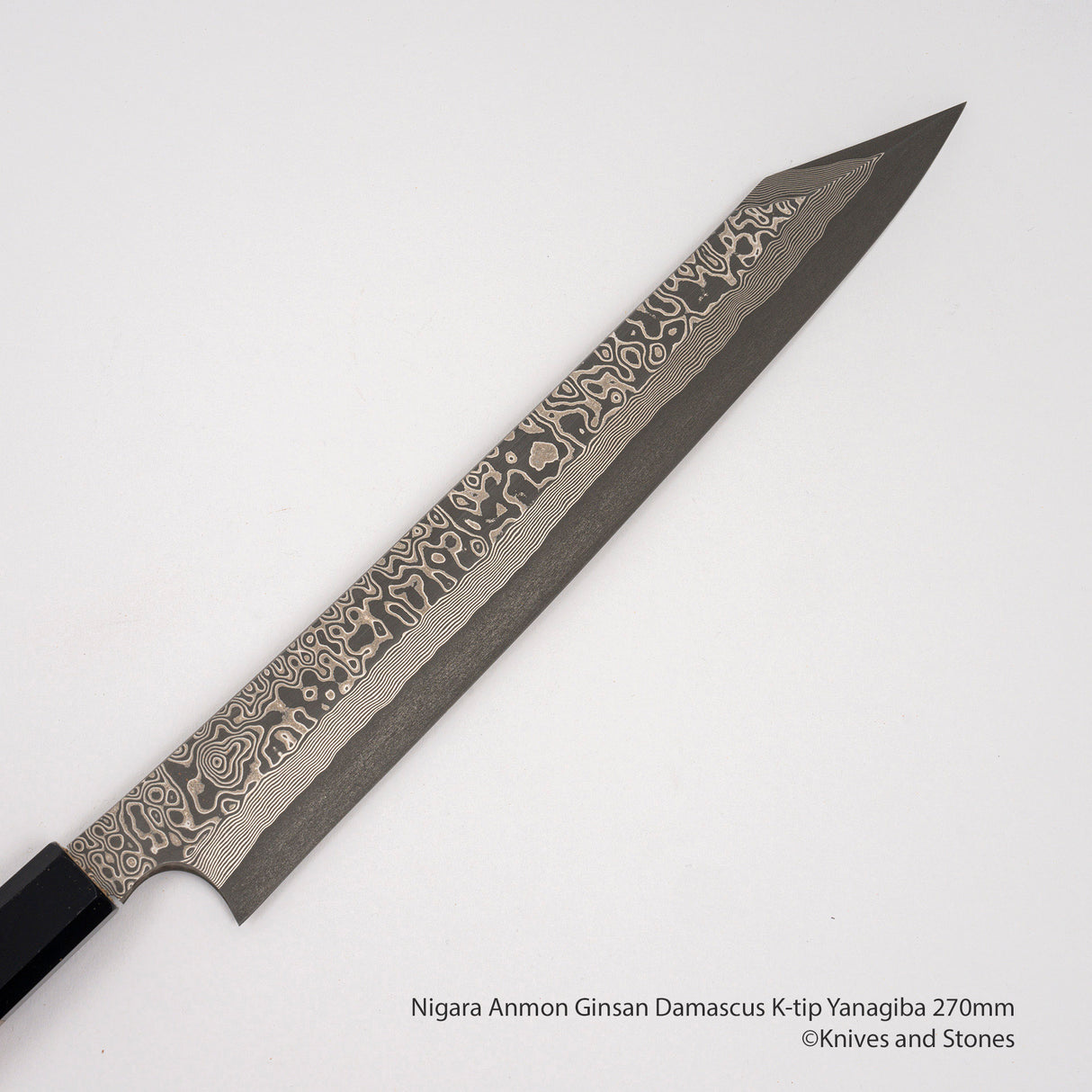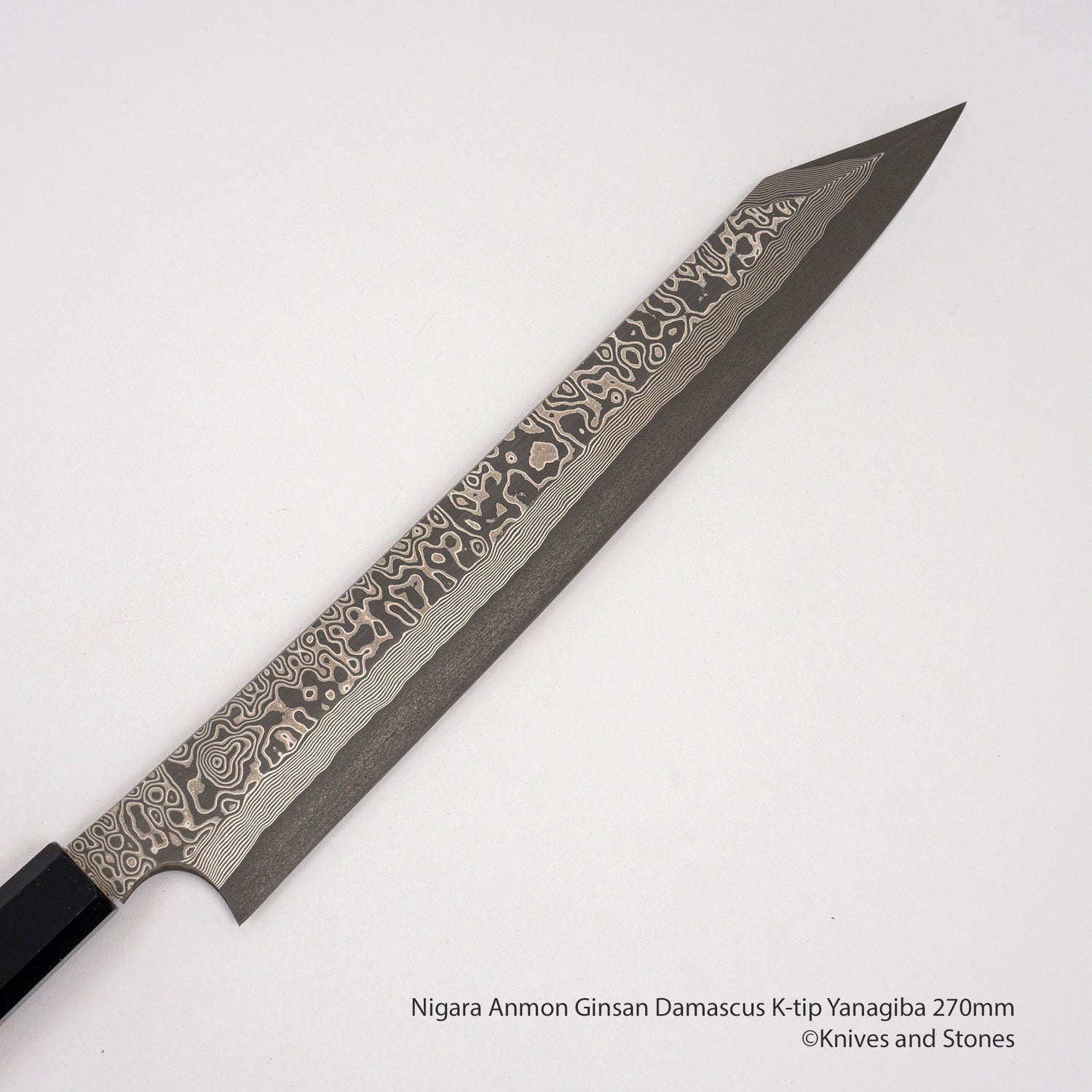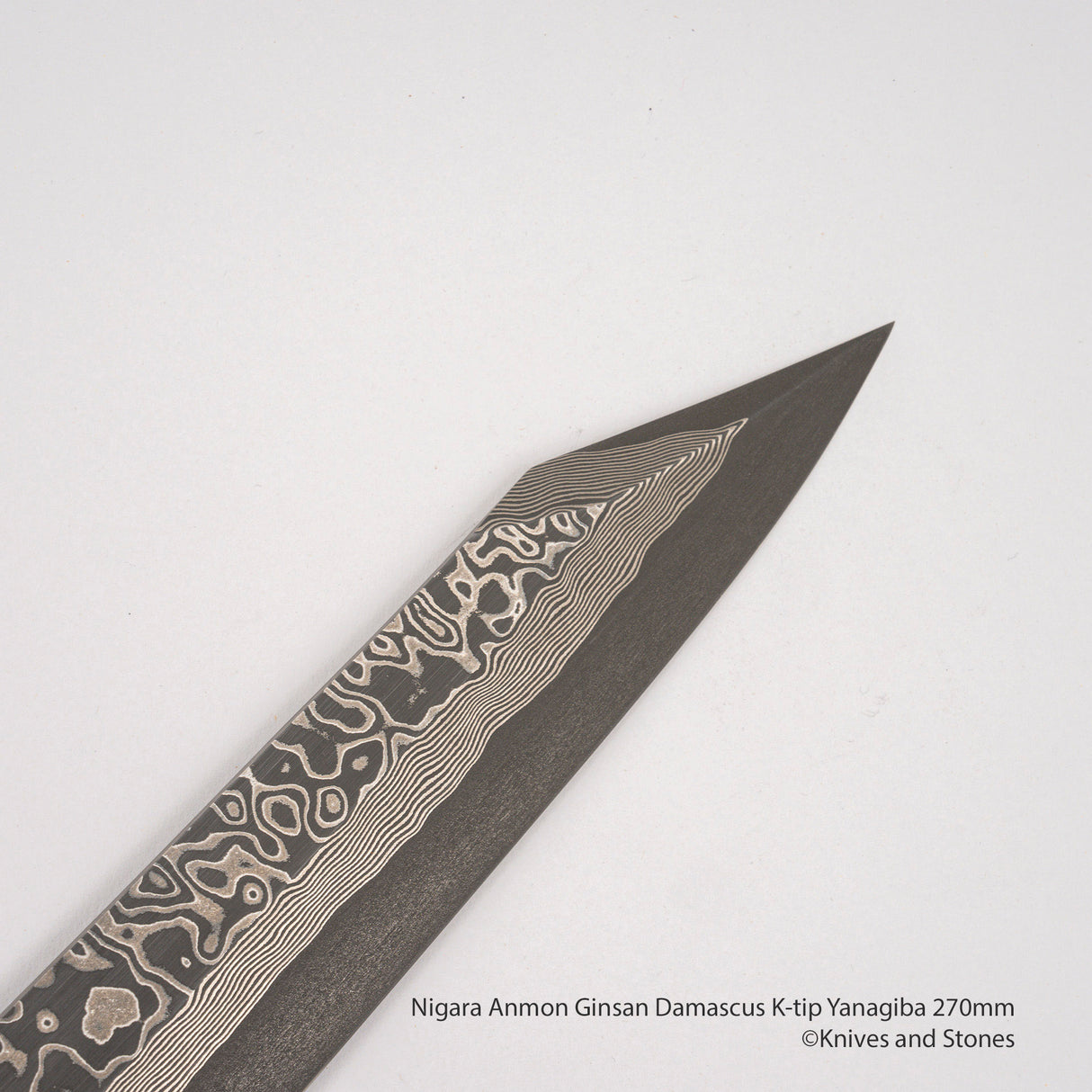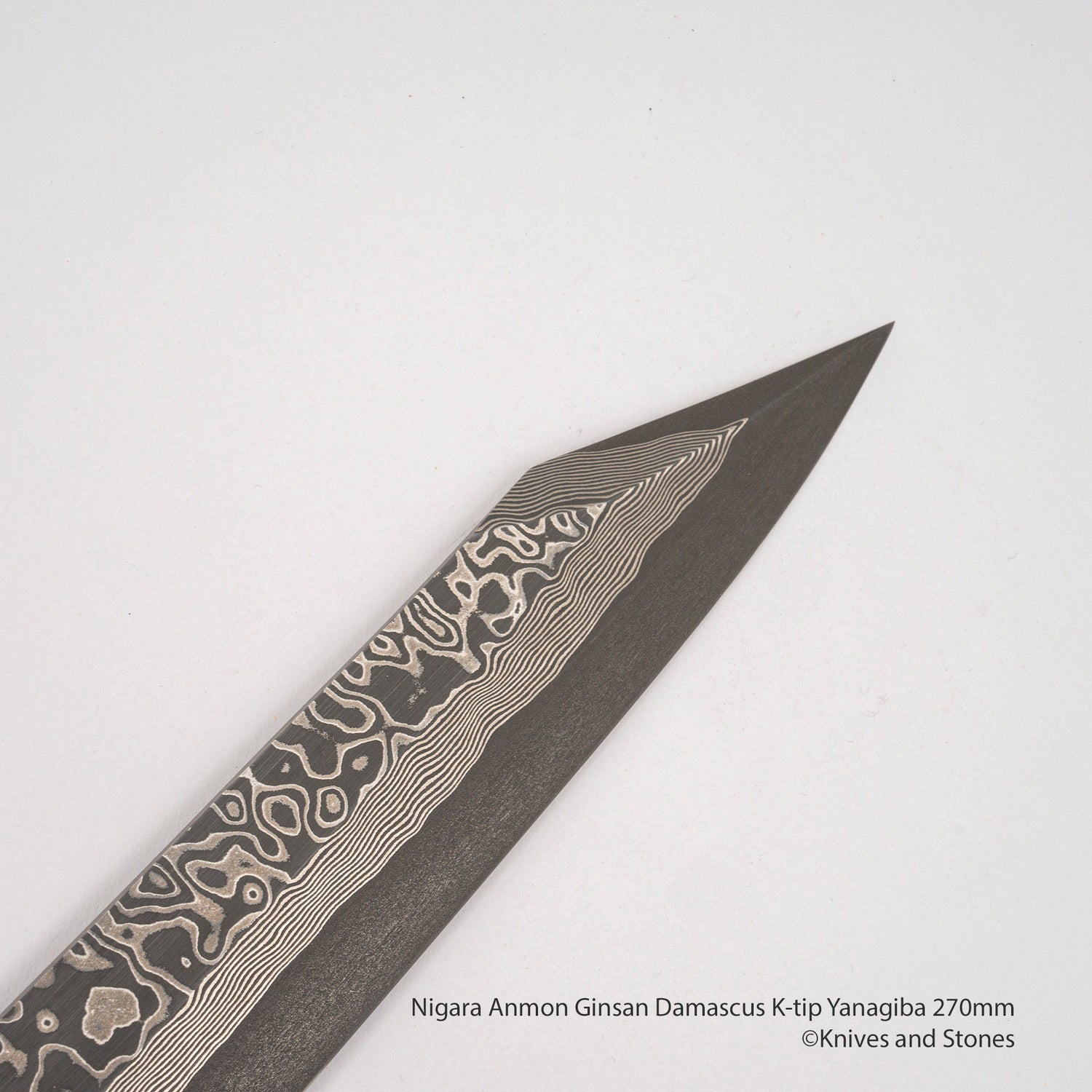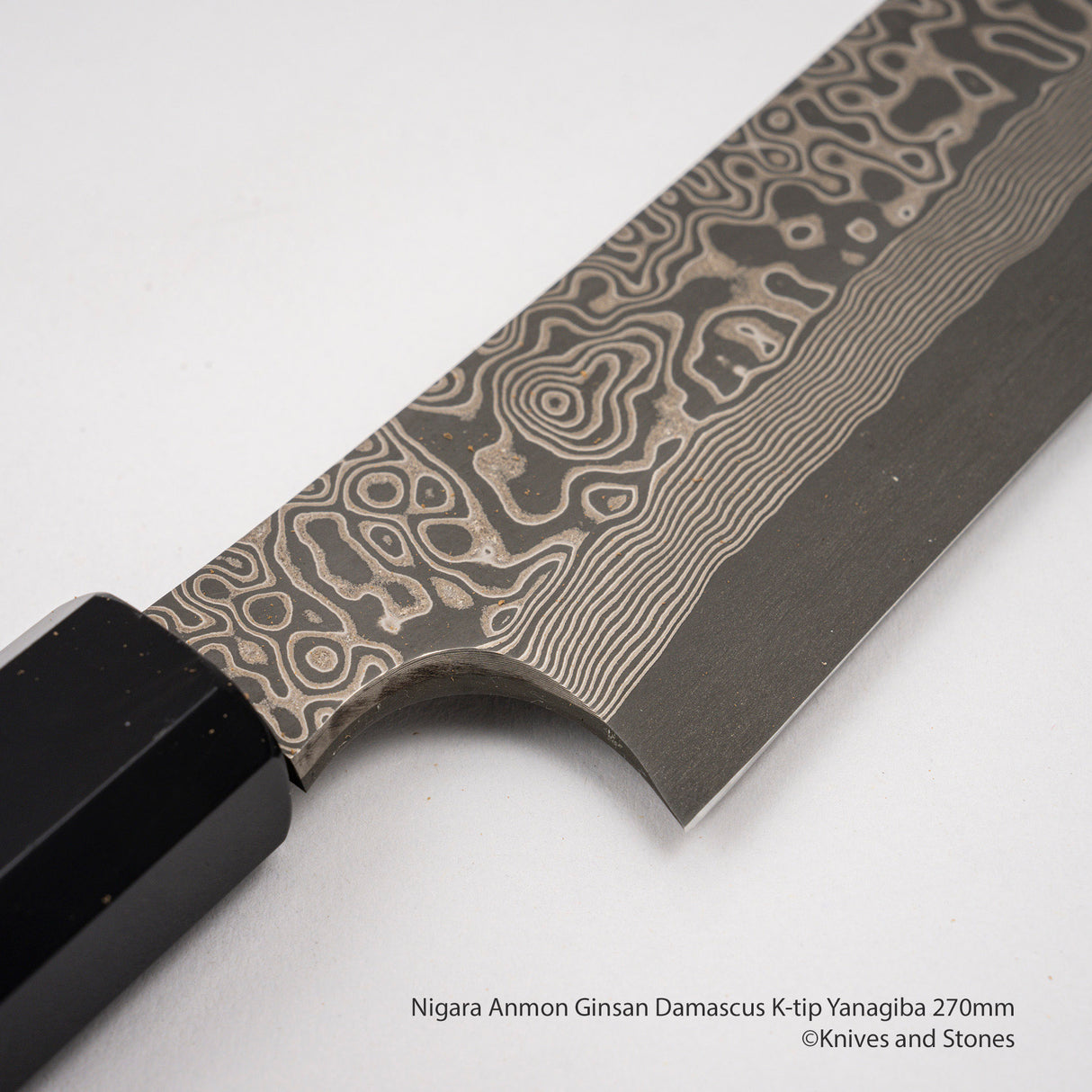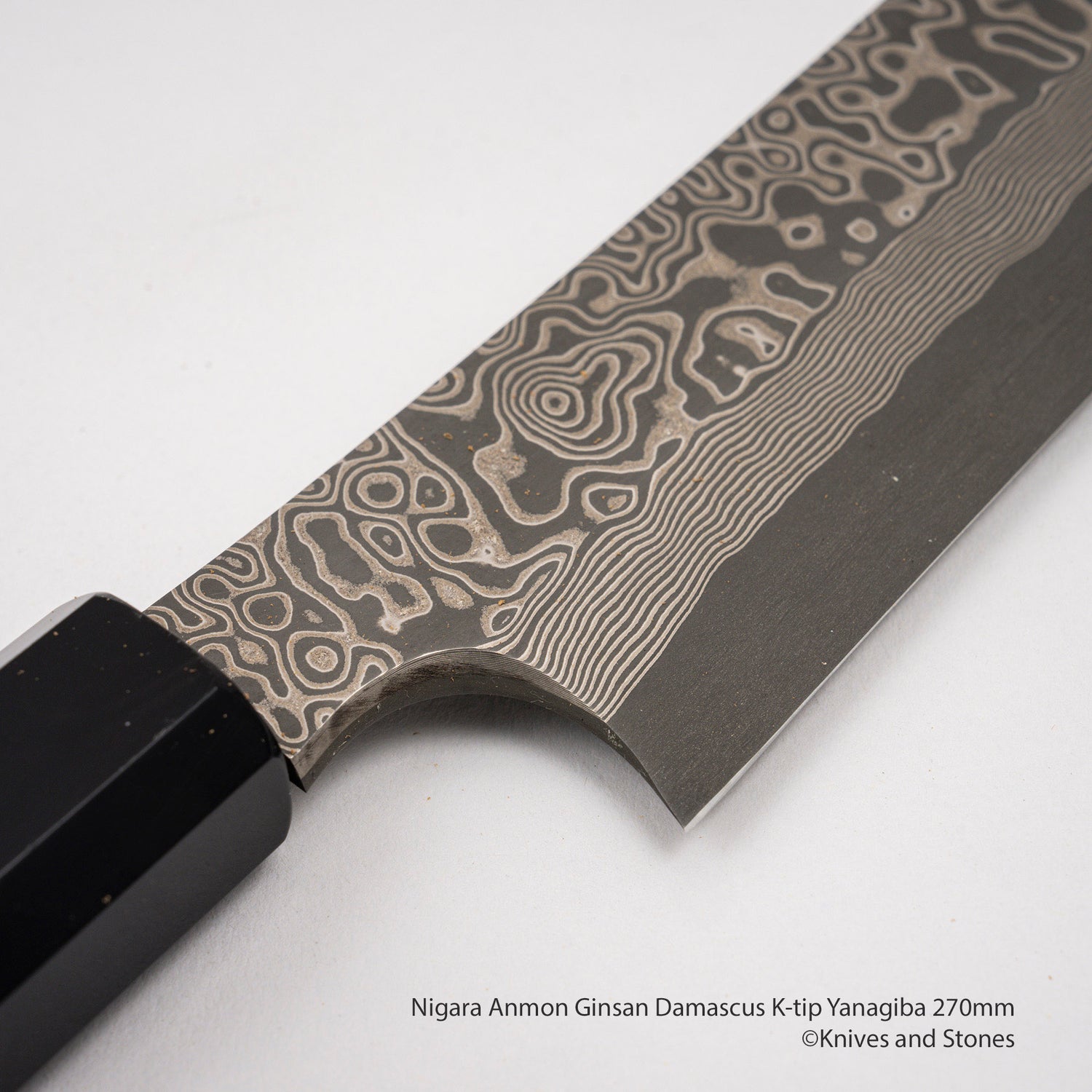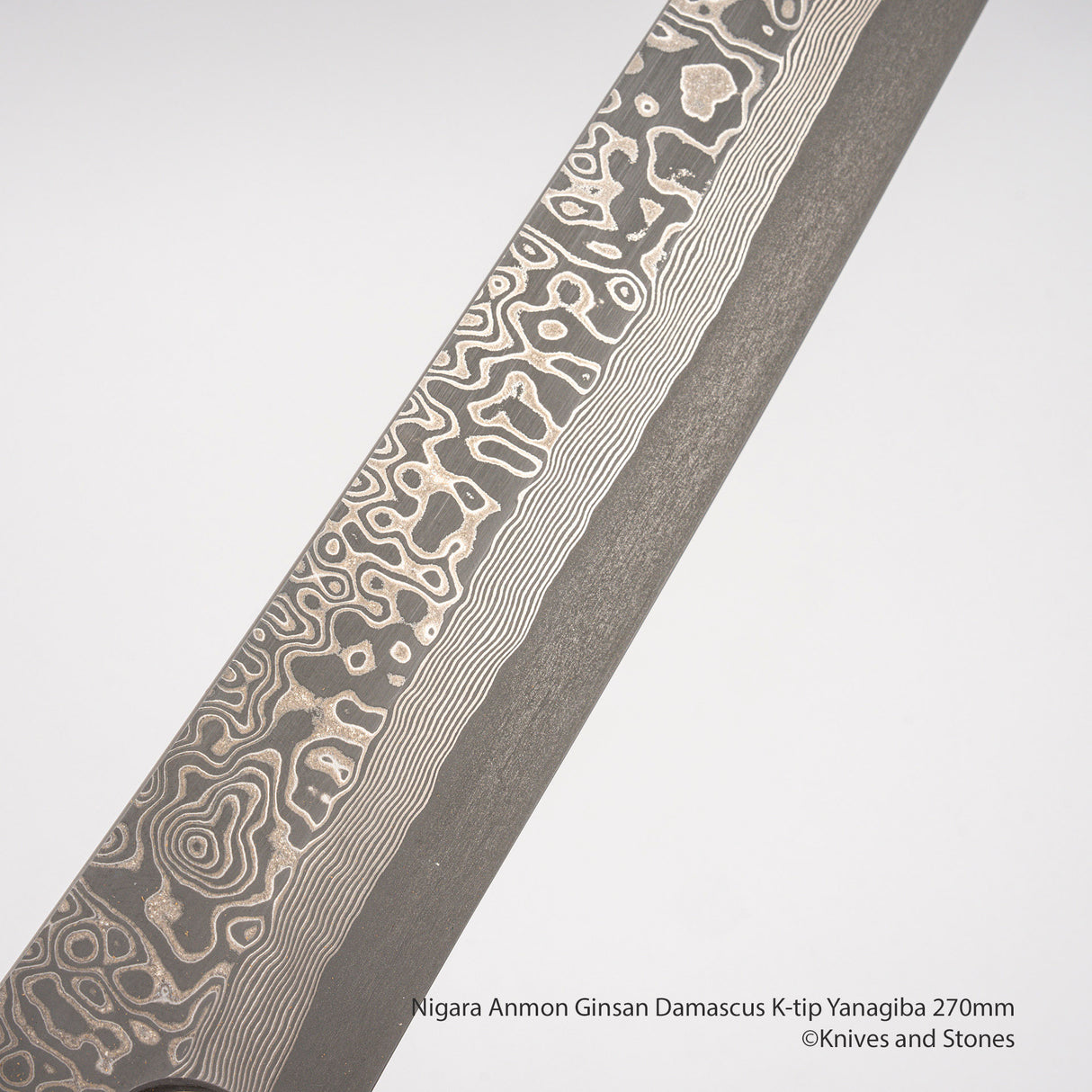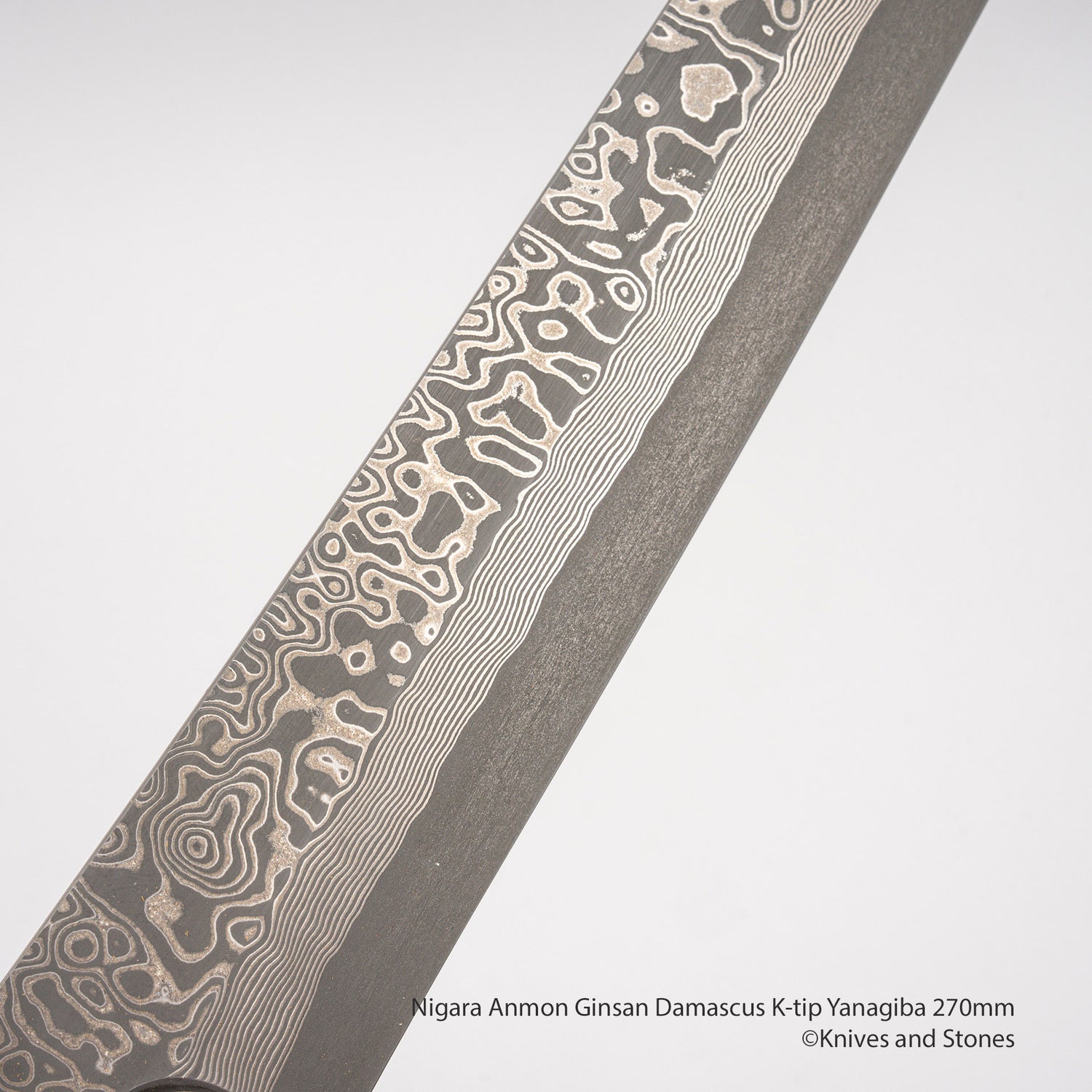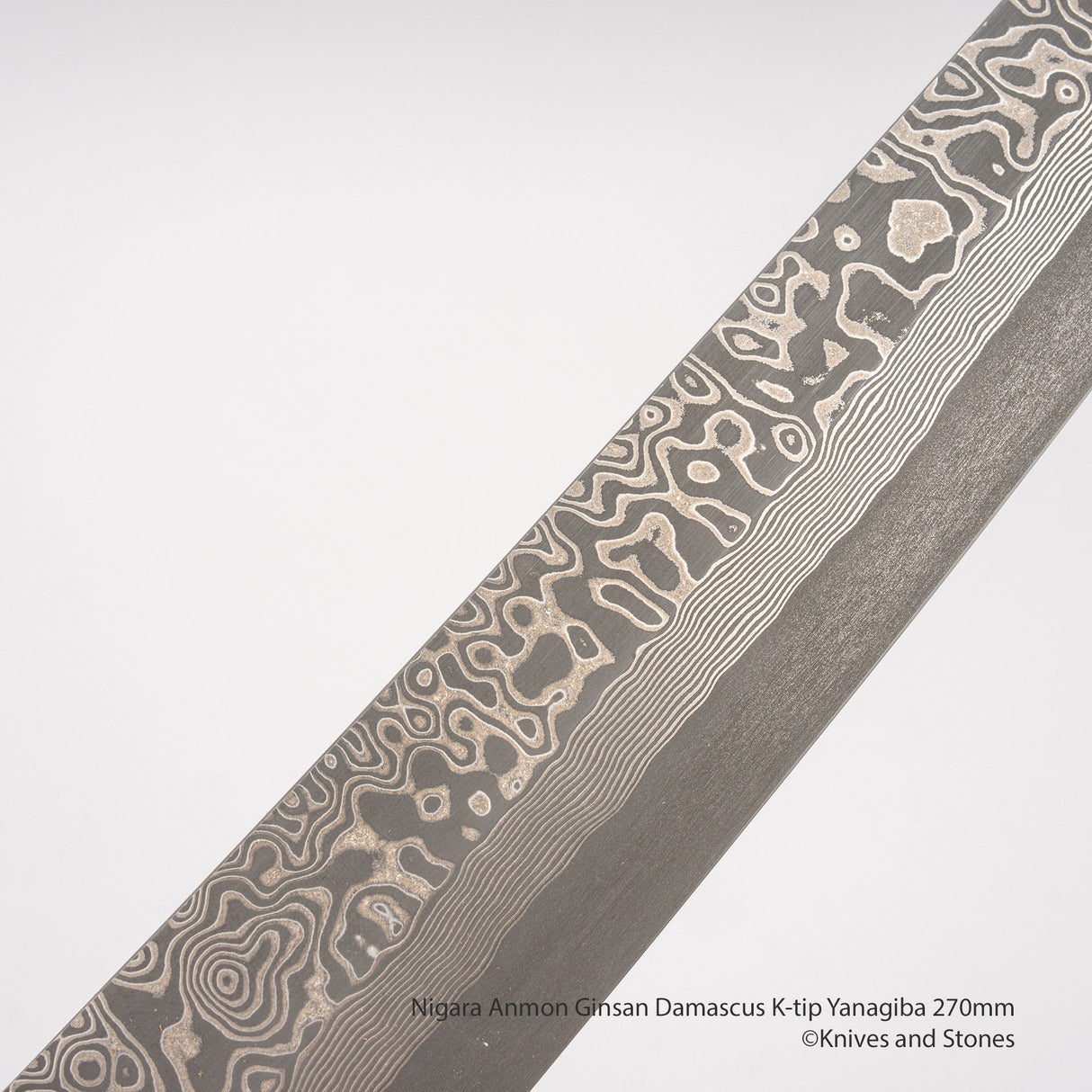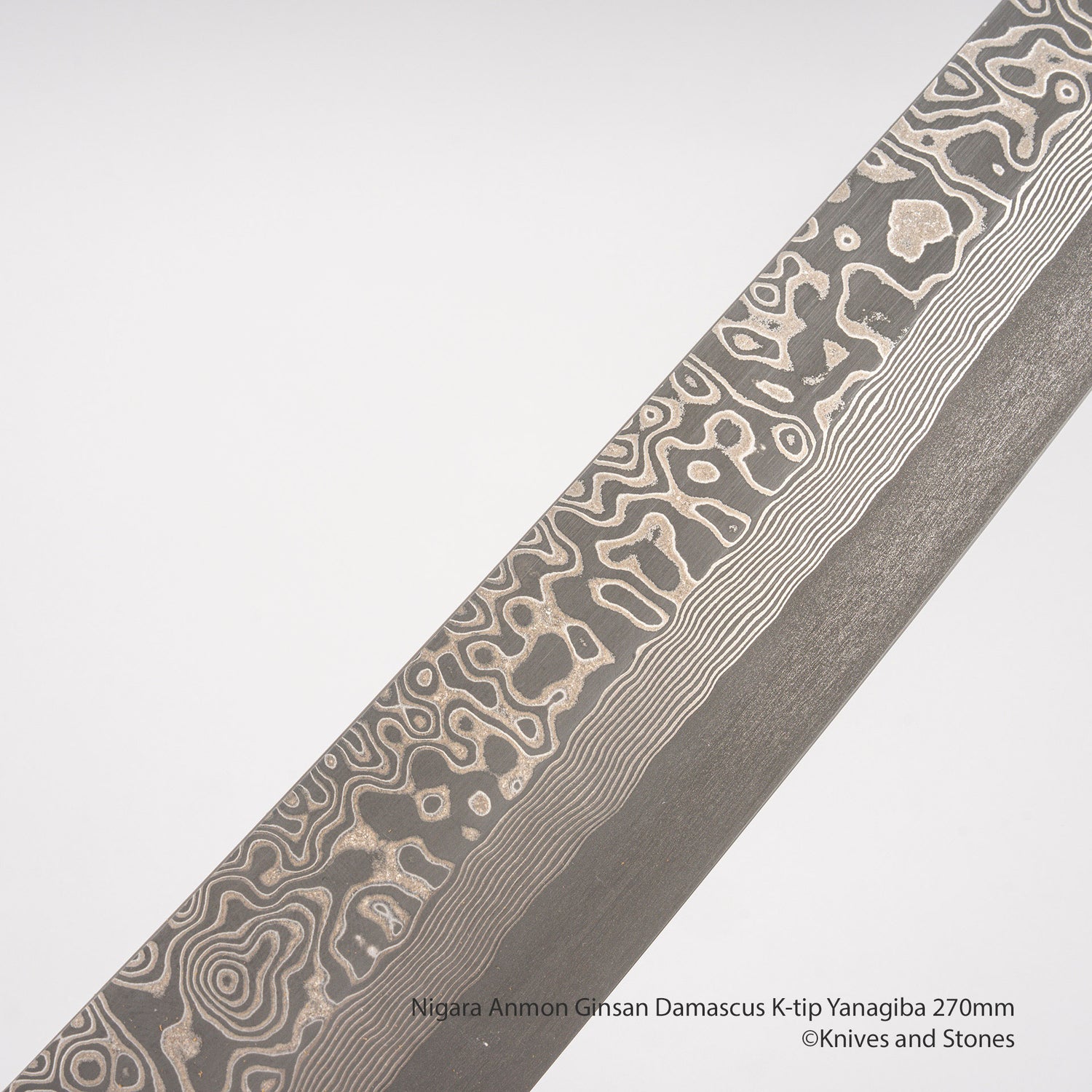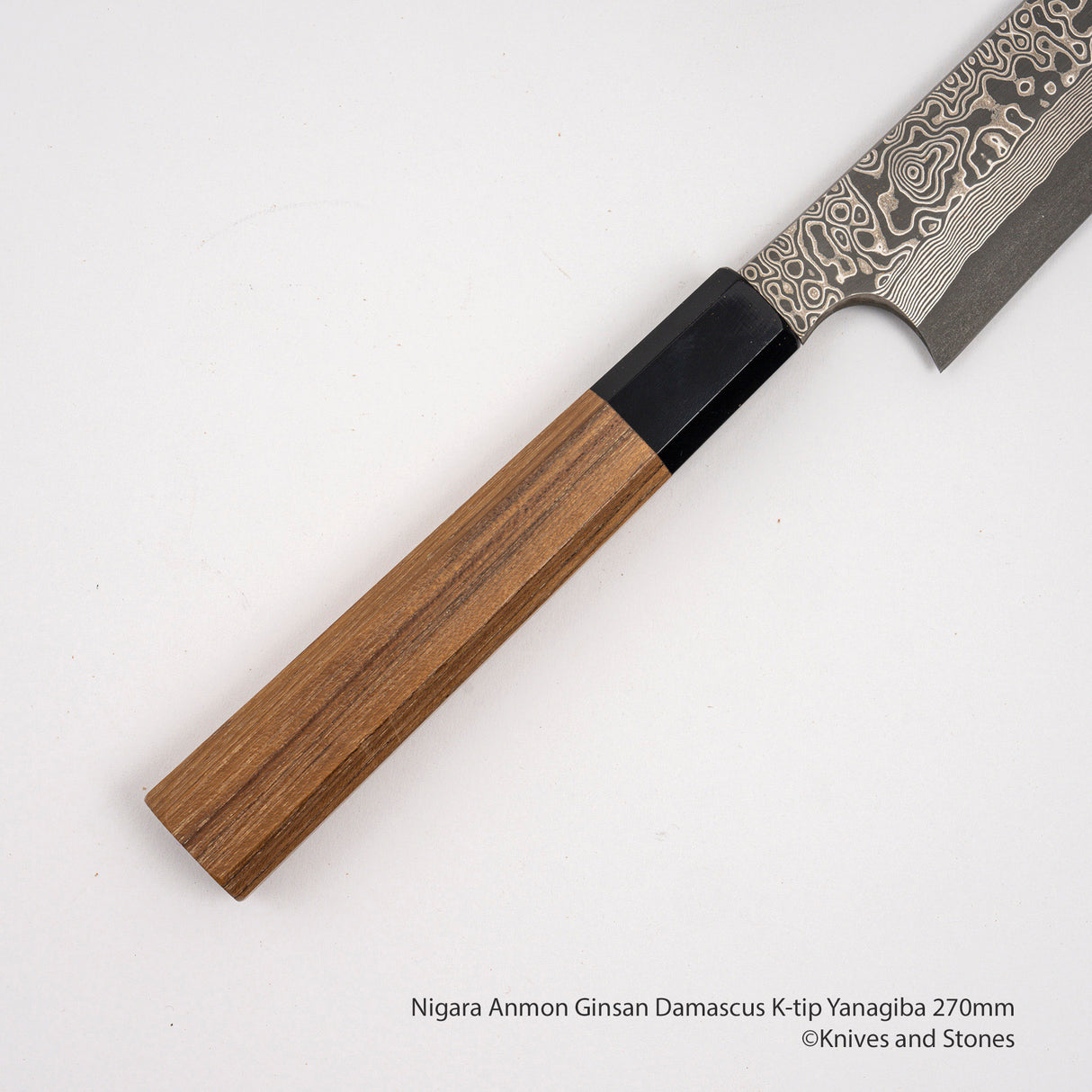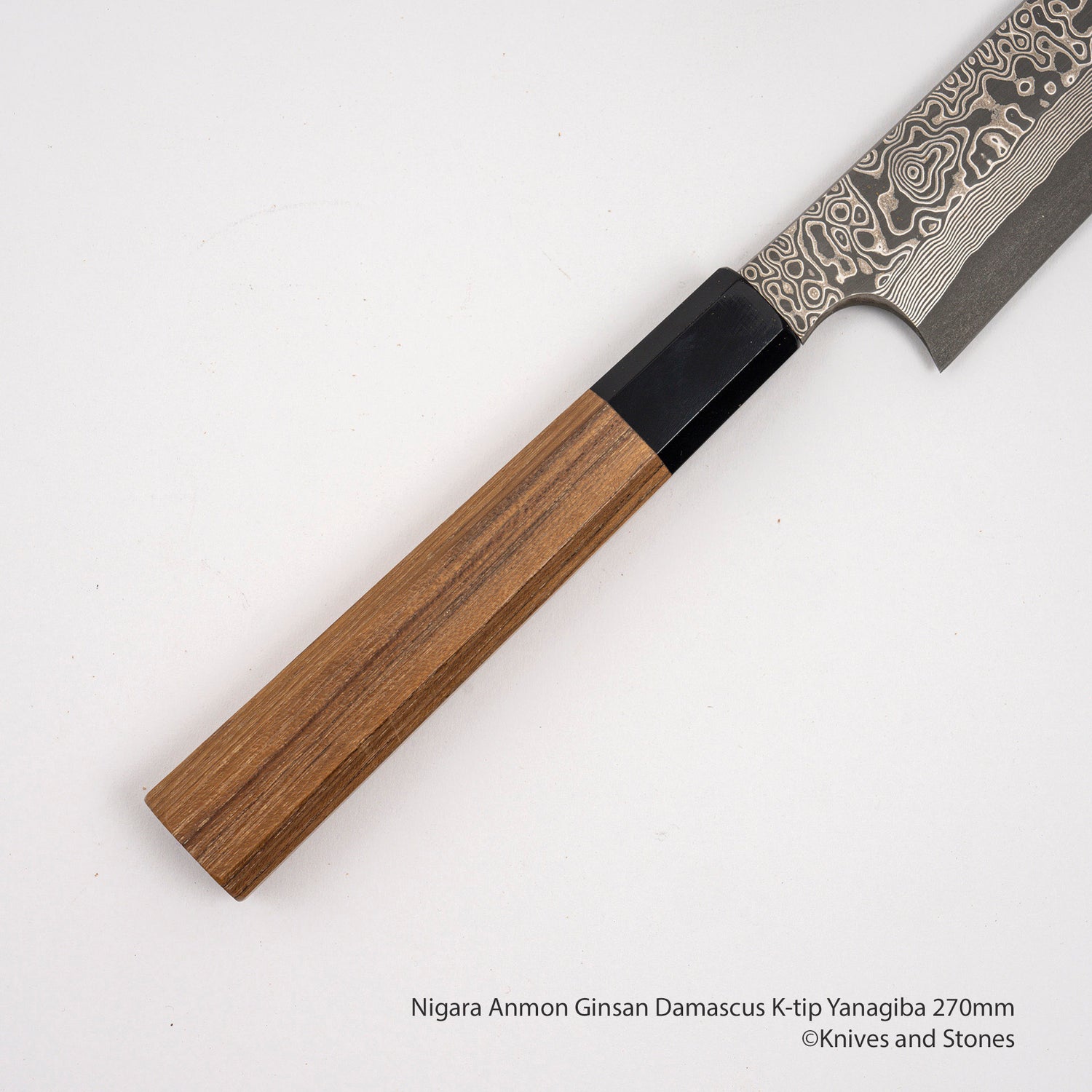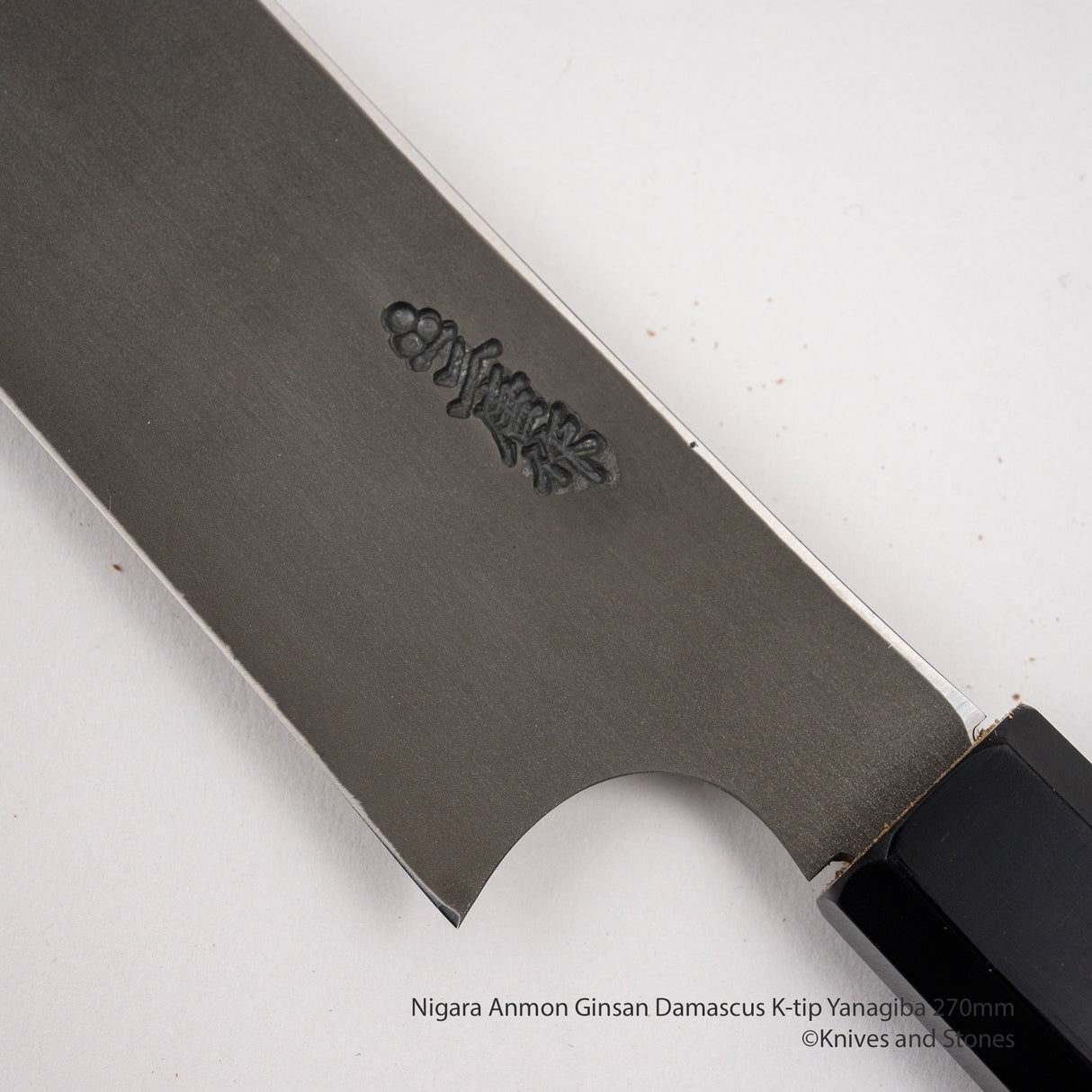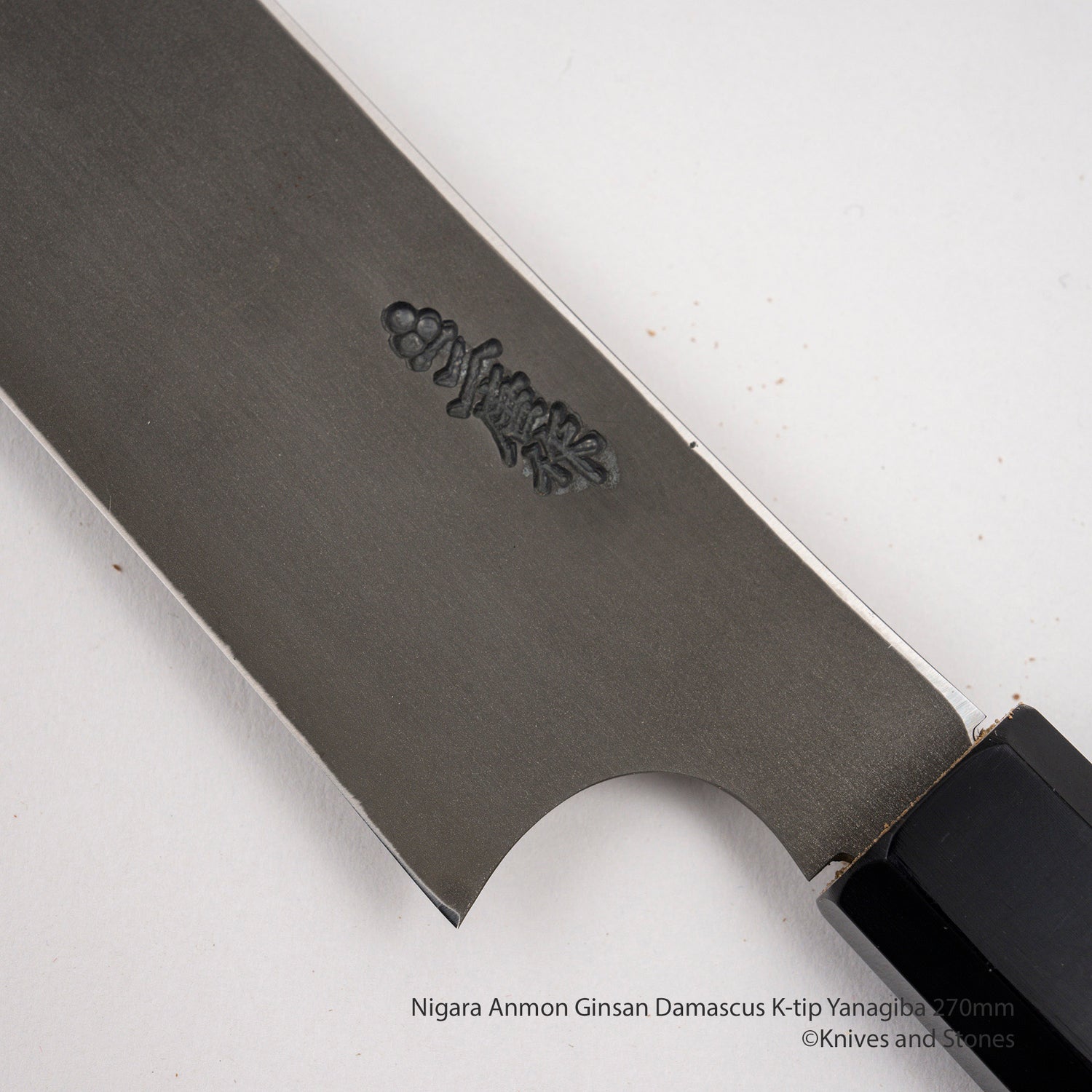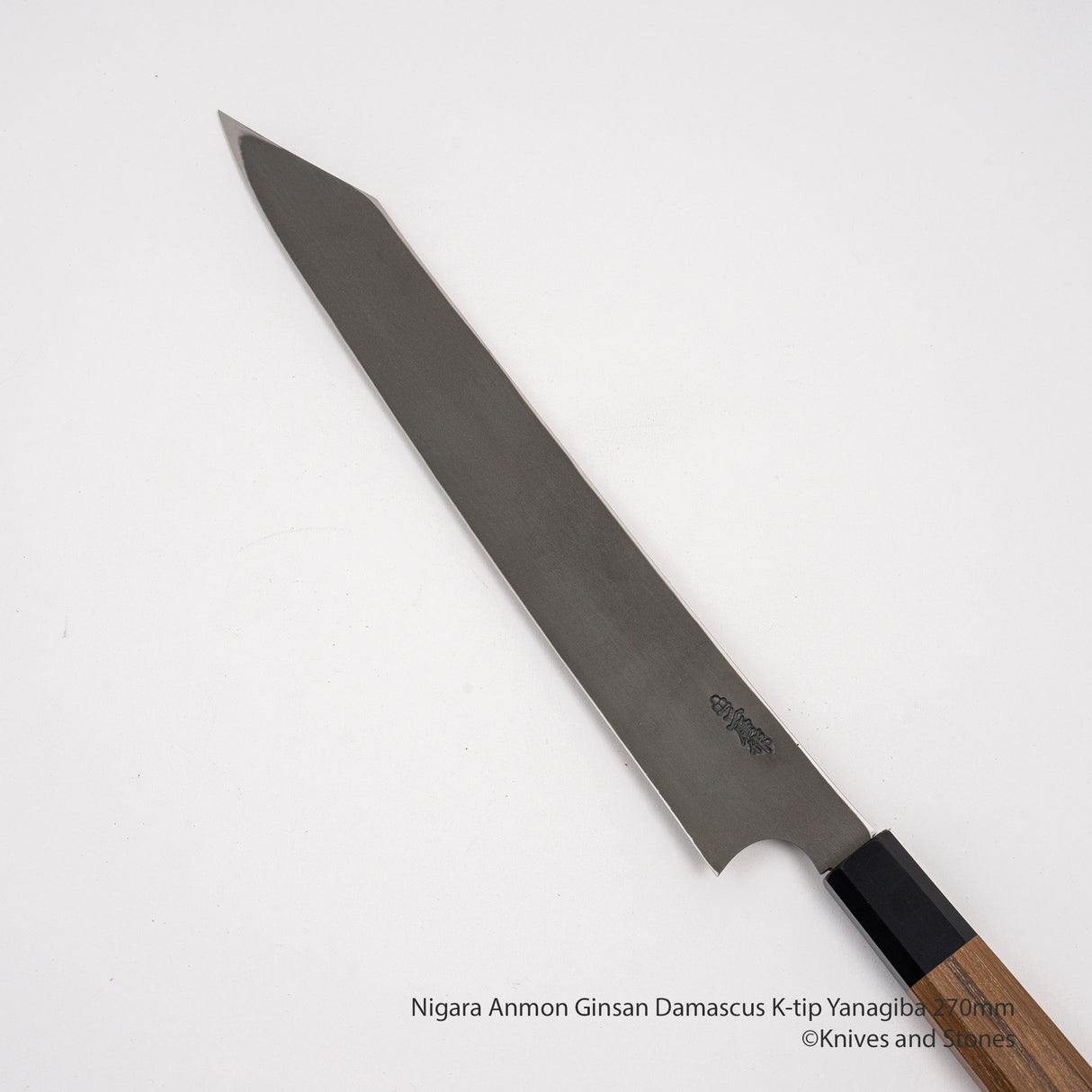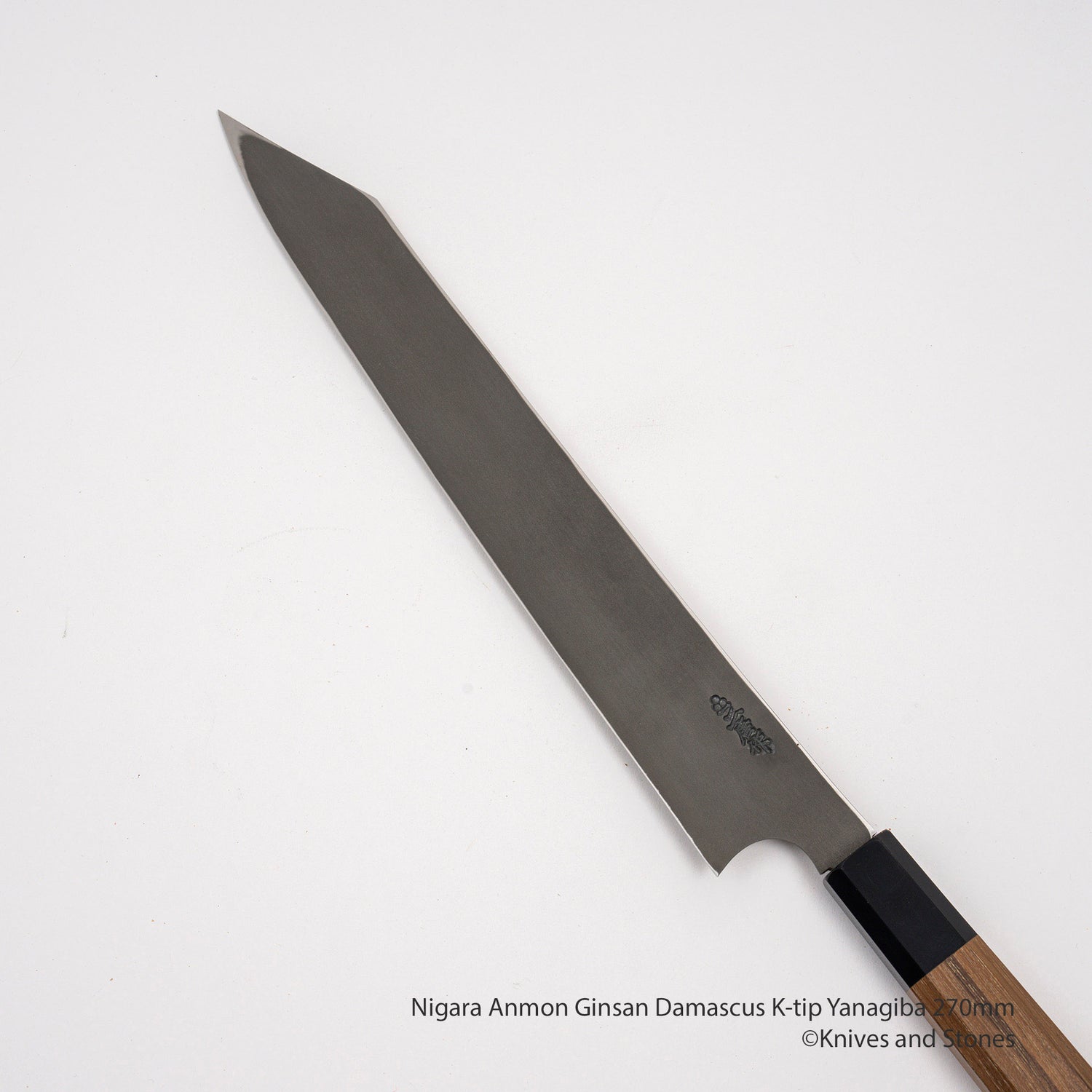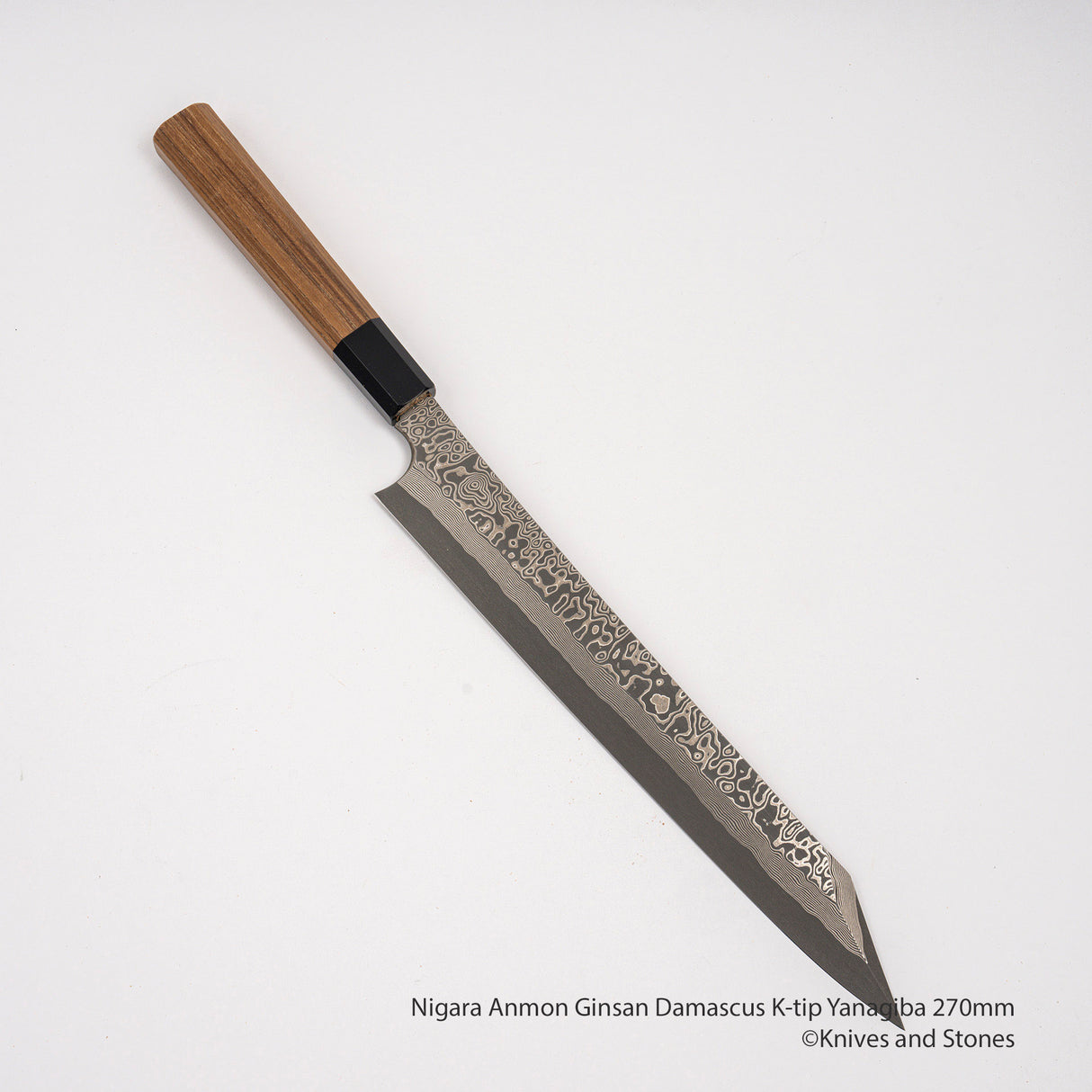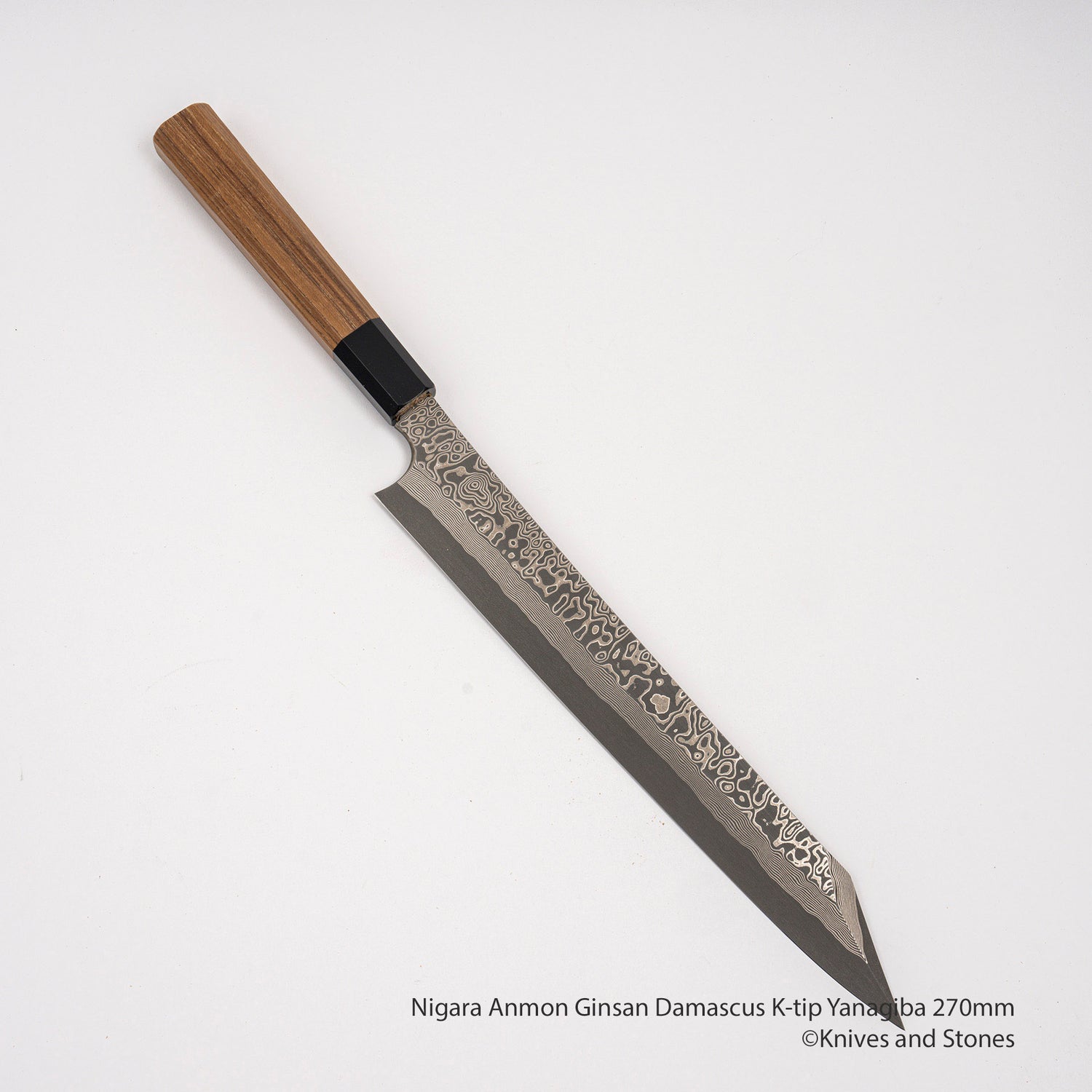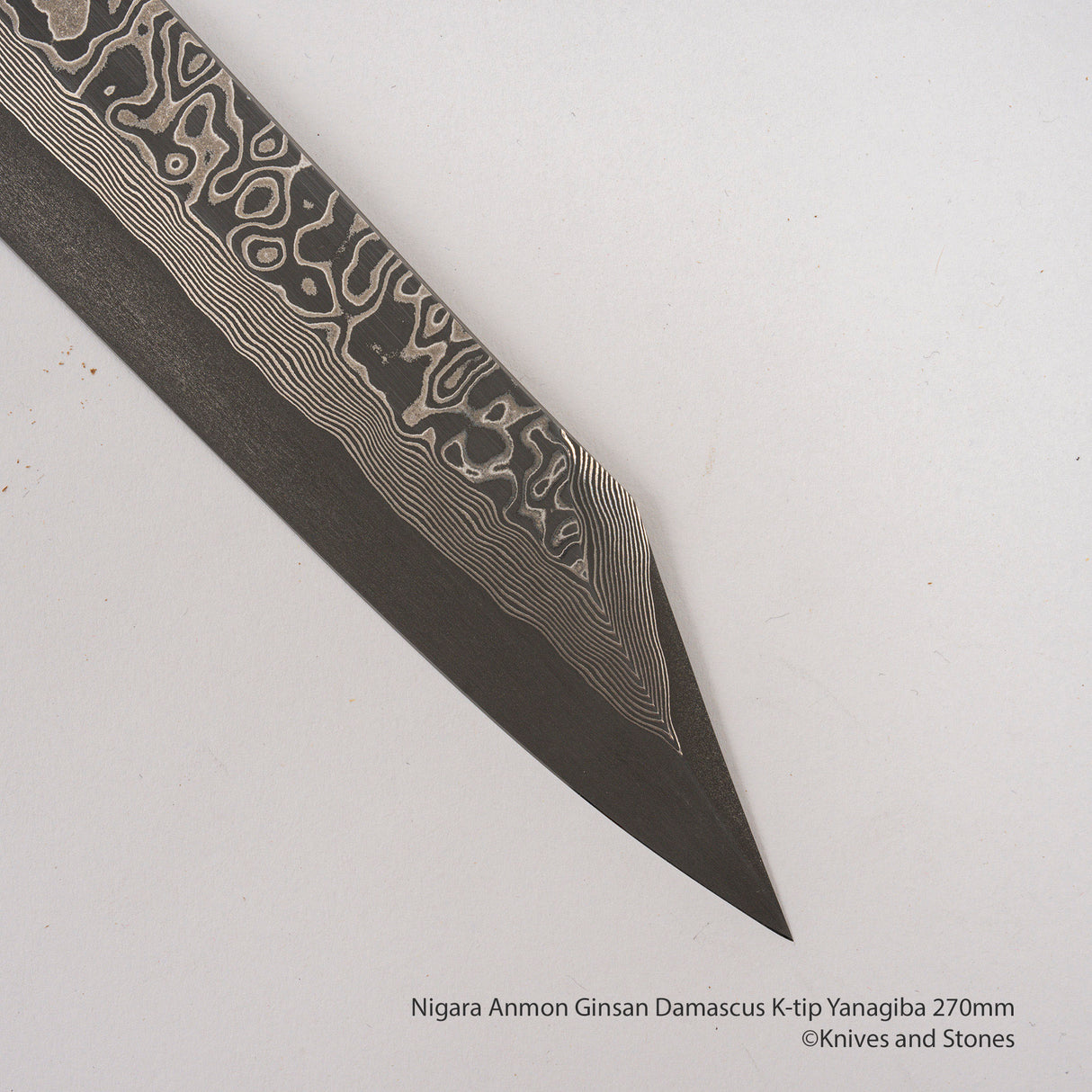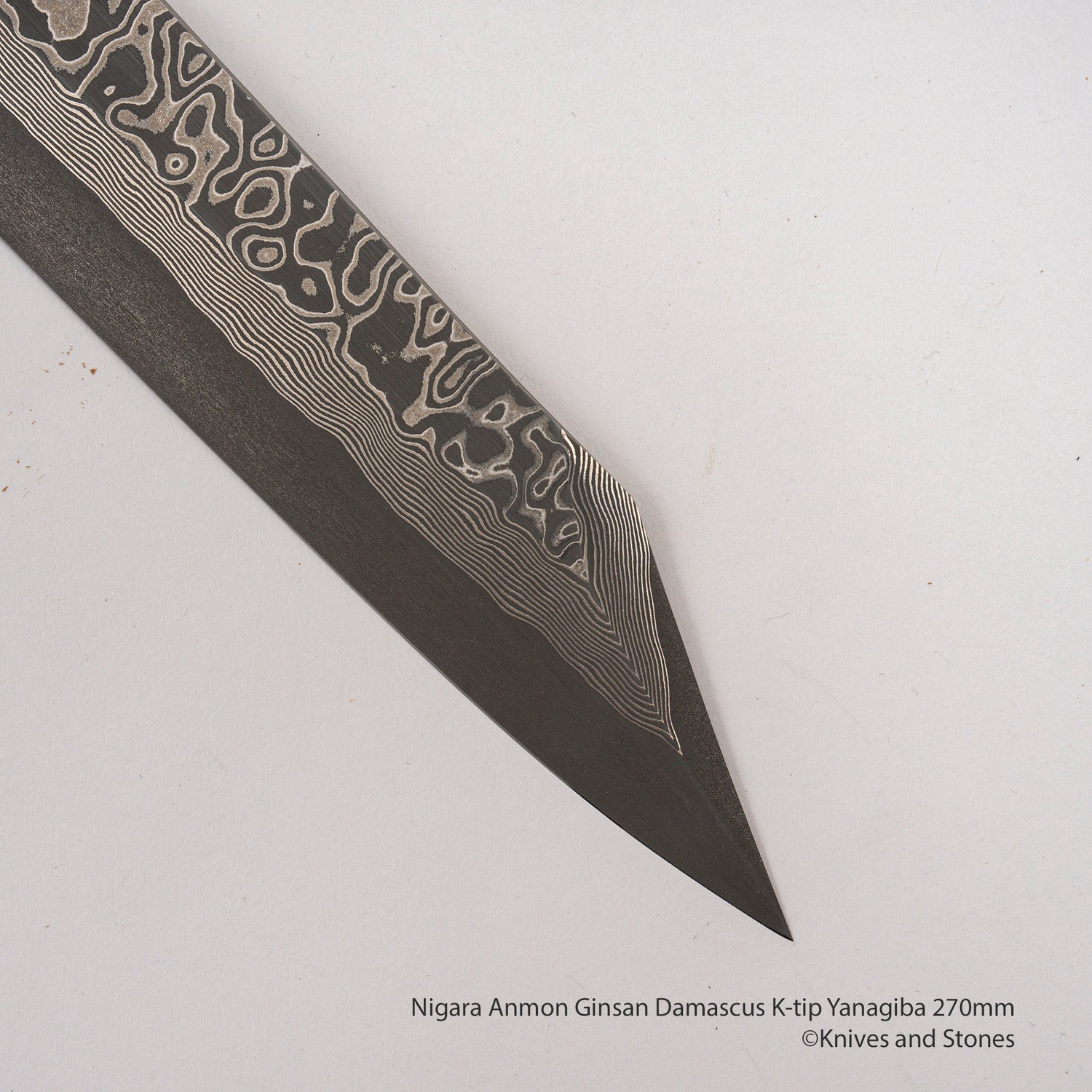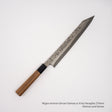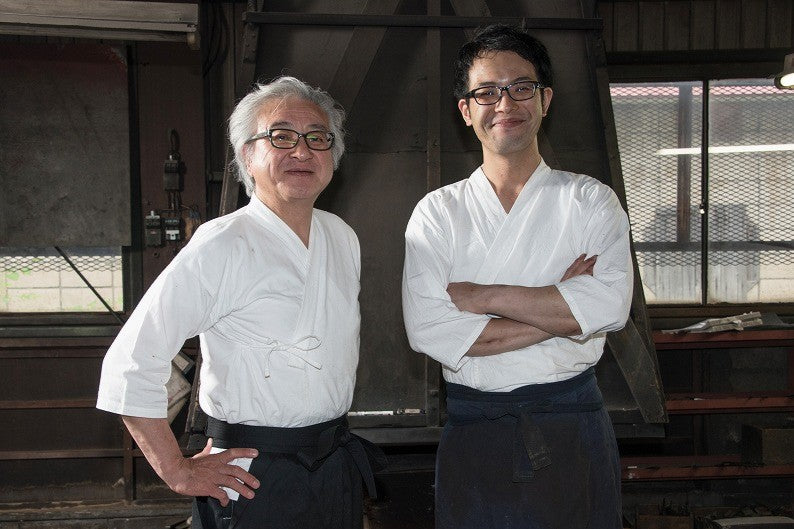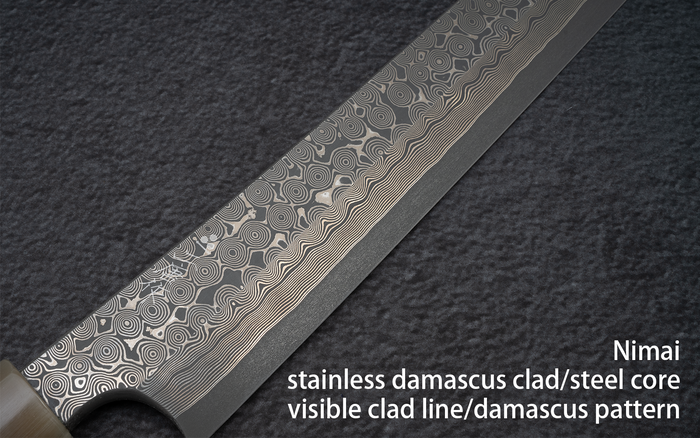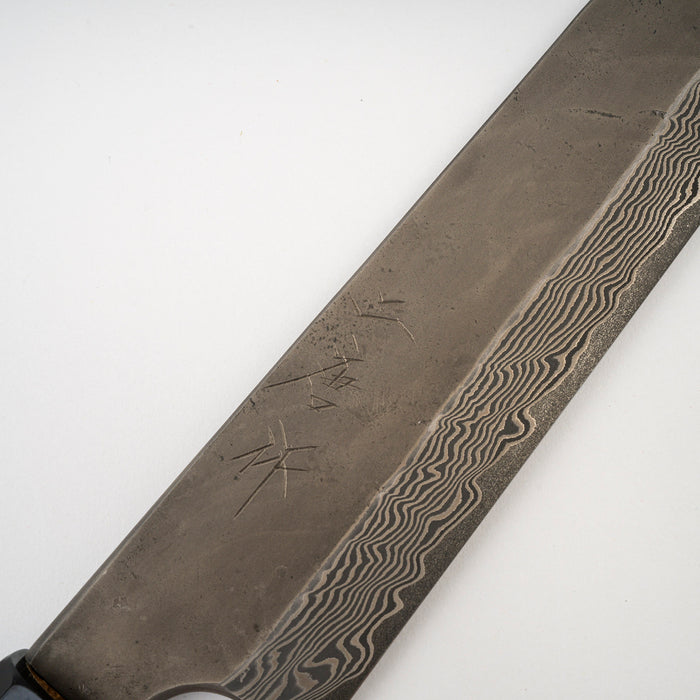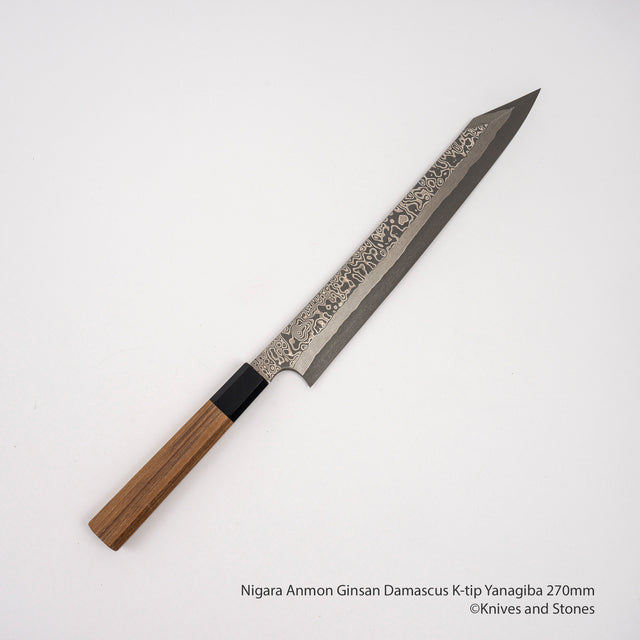Nigara | SKU:
NG-ANVG10DM-KYA270
Nigara Anmon Ginsan Damascus K-tip Yanagiba 270 mm
$1,299.95
Unit price
/
Unavailable
Tax included
Shipping calculated at checkout.
Nigara Anmon Ginsan Damascus K-tip Yanagiba 270 mm is backordered and will ship as soon as it is back in stock.
Couldn't load pickup availability
Detailed Specifications
| Line | Nigara Anmon Ginsan |
| Weight | 238 g 8.4 oz |
| Edge Length | 267 mm .10.51 inch |
| Width @ Spine | 3.6 mm 0.14 inch |
| Width @ Mid | 3.3 mm 0.13 inch |
| Width @ 1cm from Tip | 0.9 mm 0.04 inch |
| Hardness (HRC) | |
| Surface Finish | Etched |
| Handle | |
| Region | Aomori |
| Best for |
|

| Pros | Cons |
|
|
|
Care Instruction
- Don't cut hard things! Japanese knives are brittle so bone hacking is a NO NO!
- Wash with netural detergent after use, and wipe dry;
- Please don't wash knife with dishwasher, it will damage the wood handle;
- Be careful not to leave the knife close to a heat source for a long time;
- It is a lot more dangerous to cut with a blunt knife than a sharp knife!
- It is best to sharpen a Japanese knife regularly on a waterstone. Error: Steel nature unknown

